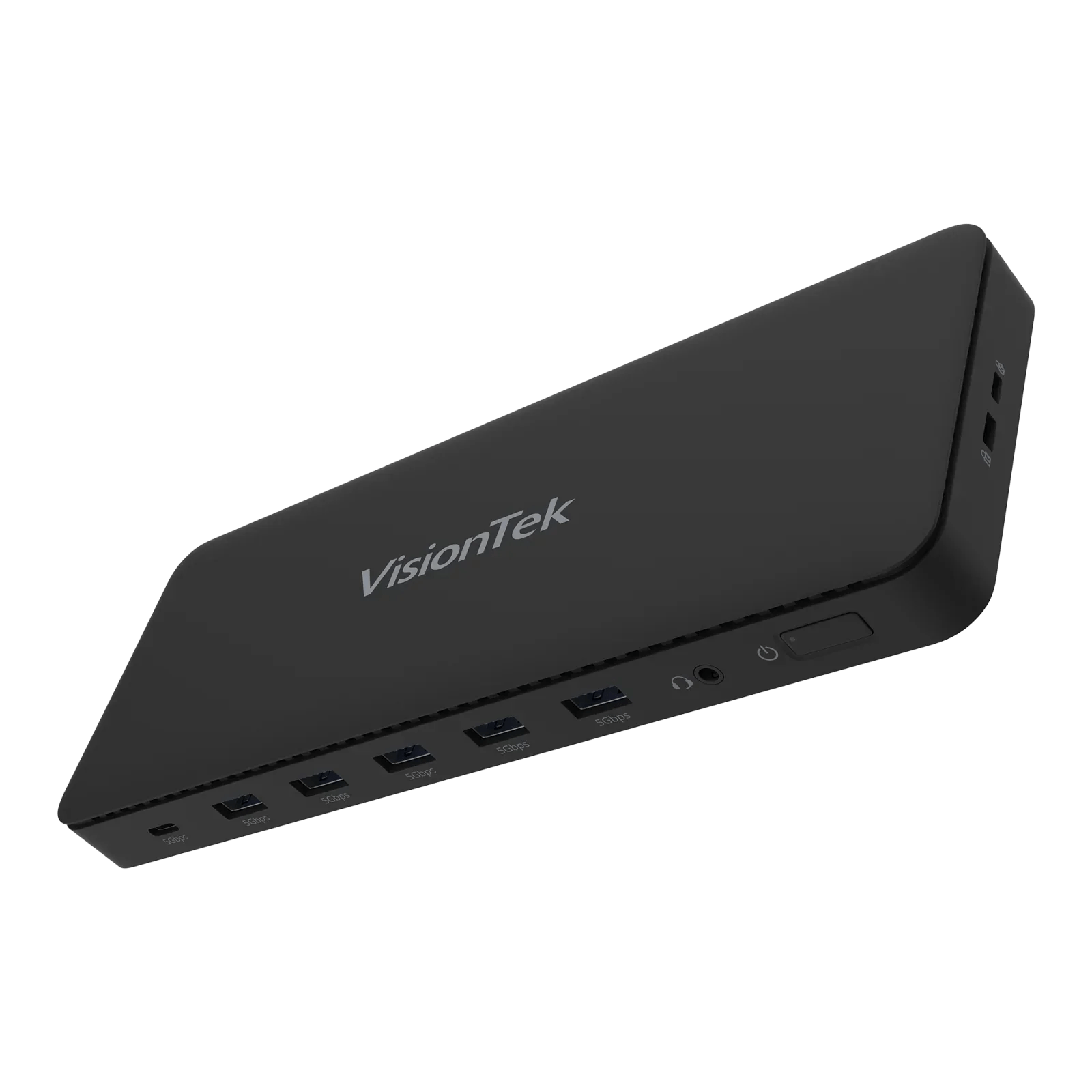What Makes a Dual 4K Docking Station the Standard for Modern Work?
Docking stations have evolved from “nice-to-have” add-ons into essential gear for today’s hybrid workspace. Whether you’re powering through spreadsheets in the office, jumping between video calls at home, or managing creative projects on the go, the right dock transforms your laptop into a full workstation. So, what defines today’s gold standard docking station? Let’s break it down.
The Power You Need — No Compromises
High-performance laptops demand high-performance charging. Many modern business and creative laptops now require up to 100W of Power Delivery to run at full speed. Anything less — like older 60W docks — can lead to slow charging or even battery drain during heavy use.
The new standard is clear: 100W PD support is a must.
Vivid Life-like UHD Dual 4K Displays
Multitasking is the reality of hybrid work. A true dual 4K@60Hz output isn’t just a luxury anymore — it’s the baseline for productivity. Whether you’re editing video, reviewing designs, or juggling financial dashboards, dual ultra-sharp monitors ensure every detail stays crystal clear, without lag.
Speed and Versatility in Every Port
A standard-setting dock must move at your pace. With USB 3.2 and higher, you’ll get the data transfer speeds needed for large file backups, creative workflows, and secure transfers. Multiple USB-A and USB-C ports ensure you can connect everything — from legacy devices to the latest peripherals — without carrying a bag full of adapters.
Works Seamlessly Across Devices
Your dock should connect with you, not limit you. Full compatibility across Windows, macOS, and ChromeOS gives you the freedom to connect your devices without worry. That means fewer frustrations and more time focused on your work.
How VisionTek Meets (and Exceeds) the Standard
At VisionTek, we don’t just follow the standard — we help define it. Take our VisionTek VT4600DL Dual 4K Docking Station:
-
100W Power Delivery for today’s most demanding laptops.
-
Dual 4K@60Hz DisplayLink technology for smooth, sharp visuals.
-
Hybrid USB-C/USB-A inputs for new and legacy laptops.
-
Cross-platform compatibility for Windows, macOS, and ChromeOS.
-
And best of all — US-based Tek Support, the same experts who test and use the products you trust every day.
With the VT4600DL, your desk setup becomes a productivity hub designed for the way you work now — and built to support the way you’ll work next.
Final Thoughts
The dual 4K docking station has become the new standard for hybrid work — power, display quality, speed, and flexibility all in one. With VisionTek, you don’t just get the specs.
You get Smart Tek. Real Support.
Author: Cody Leutner, VisionTek Product Analyst
FAQ’s from the Author:
DisplayLink uses efficient compression that taps CPU/GPU lightly during typical office, web, and multimedia work. 3D gaming or ultra-high-bitrate workflows are best driven on a GPU’s native video outputs when possible; for productivity, DisplayLink is excellent.




Share:
Modernizing Government Offices with Advanced Connectivity Solutions
The Surprisingly Easy Ways to Sabotage Your Remote Interview (And How Not To)